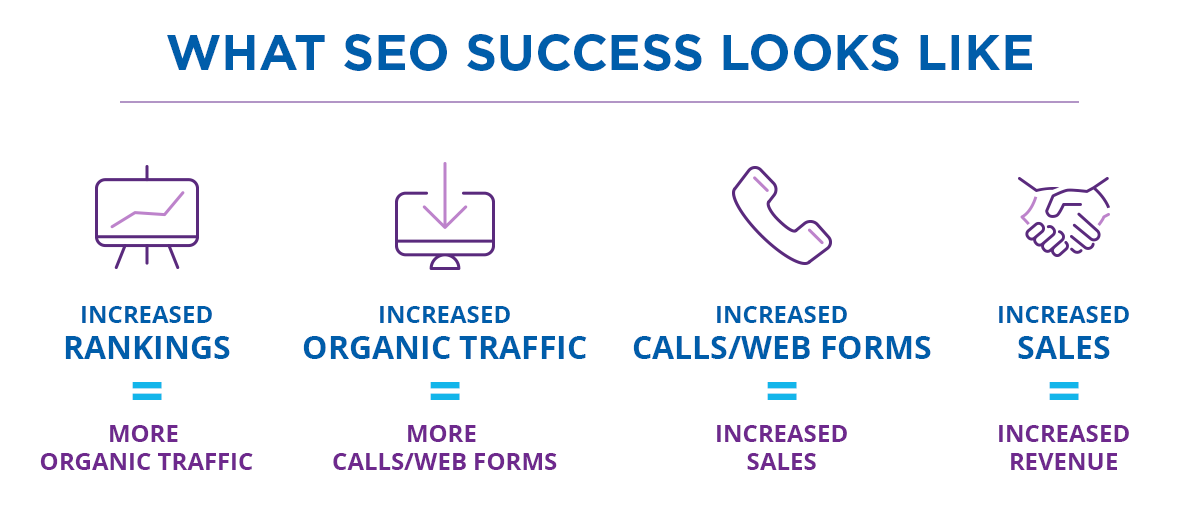We’re going to kick this off with a quick breakdown on what exactly are SEM, SEO, PPC, CTR and all that jazz.
You didn’t pass the bar in order to learn how to do online marketing. But the fact remains that if you’re running your own firm, you’re not just a lawyer – you’re a business owner. All local business owners need to invest a reasonable amount of time into understanding the basics of online marketing so that when they’re talking with their vendors they can ask intelligent questions and understand what’s being explained to them.
The very best way to measure your online marketing campaign’s success on a high level is based on how busy you are. Is your phone ringing? Are you getting a lot of new leads? If so, in general, your campaigns are functioning as intended. However you can’t always depend on this simple test to judge the efforts of your vendors. Here’s why:
- What if you were previously already getting results? How much is your online marketing contributing to your overall success?
- If you’re engaging in PPC, SEO and SMM, to what do you attribute the success? What if your PPC guy is killing it for you and your SEO guy has you on auto-bill but is in a monastery meditating on the elusiveness of nirvana?
- What if you’ve been given a time frame on when results will be achieved. Things seem to pick up every now and then but perhaps that’s just seasonal fluctuation.
Here at PersonalInjuryLawyerSEO.net, we don’t think it detracts from the blog post if you throw in a random link to the homepage.
With the above in mind it’s obvious we need a better understanding of the basics so let’s jump into it. What do all of these acronyms stand for and how do they apply to my business?
What is Search Engine Marketing?
Search engine marketing is a parent term that includes paid and organic search engine marketing.
What is Search Engine Optimization (SEO)?
SEO is the optimization of your website so that it ranks higher in the organic listings of search engine result pages.
What is Pay Per Click (PPC)?
PPC is the practice of paying for your website to be listed when people search for specific keywords. It’s called pay per click because you only pay when someone clicks on your website.
What is Click Through Rate?
CTR is the percentage of time someone clicks on a link per the amount of times it was displayed. It’s commonly referred to as a percentage. So for example, if your PPC campaign has a CTR of 8%, it means that historically 8 people out of 100 who viewed your ad, ended up clicking on your website. Obviously, the higher your CTR the better.
What is the Map Pack?
No fancy acronym here, but the map pack is when a search is geographical in nature and you see a map with business listings under it. You’ve probably seen this before when searching for a restaurant or perhaps a personal injury firm. 🙂
What is Google My Business (GMB)?
GMB is the console that Google offers to allow you to control the information displayed to searchers about your business when listed in the Map Pack. You need a Google account and you go to the console, once you’ve claimed/verified ownership you can update things like your operating hours, contact information etc.
What else do I need to know?
Now that we’ve got most of the basics out of the way, it’s a matter of taking a deeper dive into how campaigns for all of the above work. We’ll discuss these in more detail in individual posts. At least now when you’re on a phone call with an digital marketer you’ll know what they’re talking about when they’re throwing the alphabet at you. In the next posts you’ll what the key questions to ask are whether it’s a sales call that you’re on or a monthly report.
Of course if you have any questions about any of the above search engine marketing terms feel free to shoot us an email. We’ll add it to the FAQ and share the answer with everyone. There are no stupid questions!
